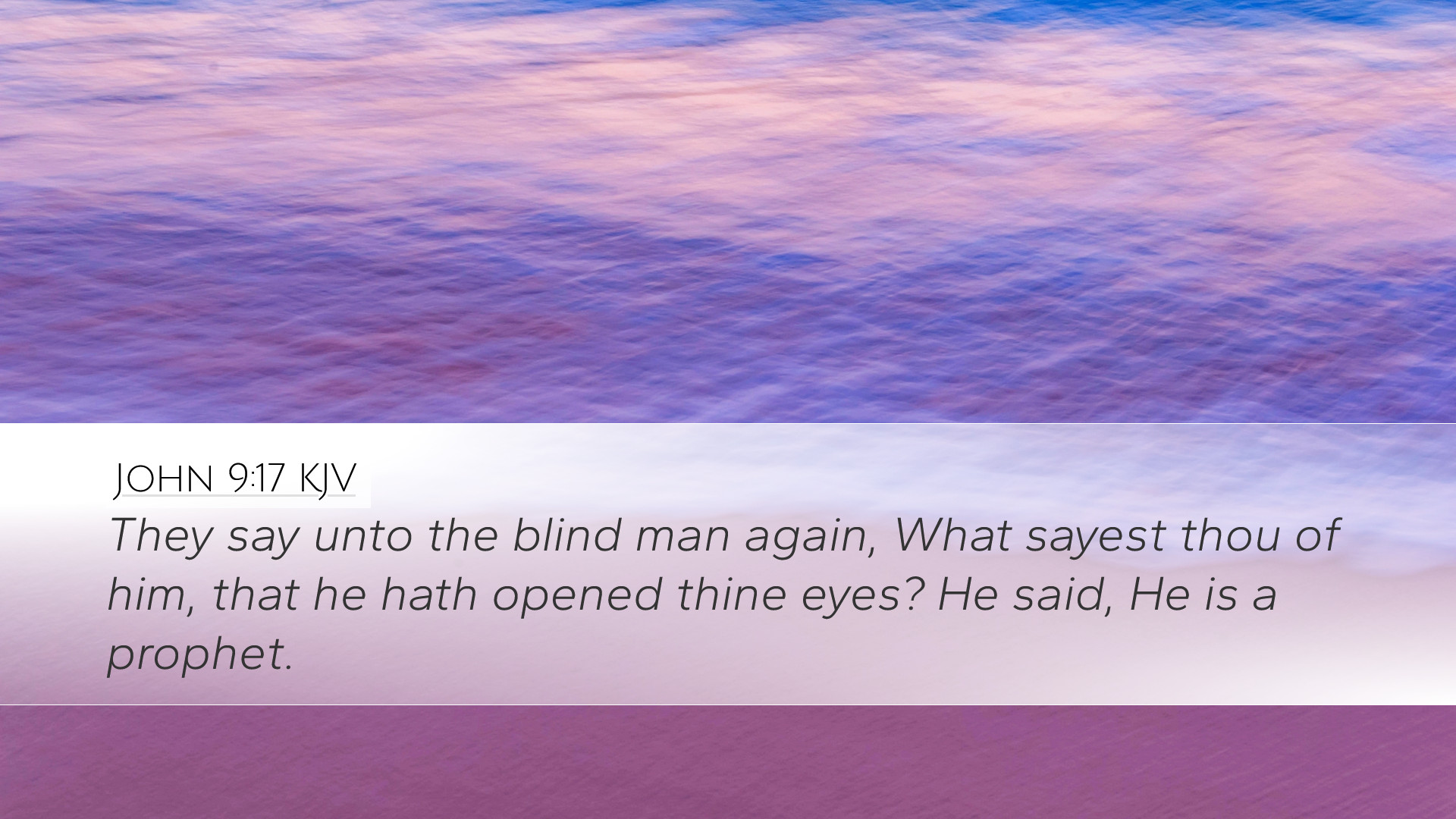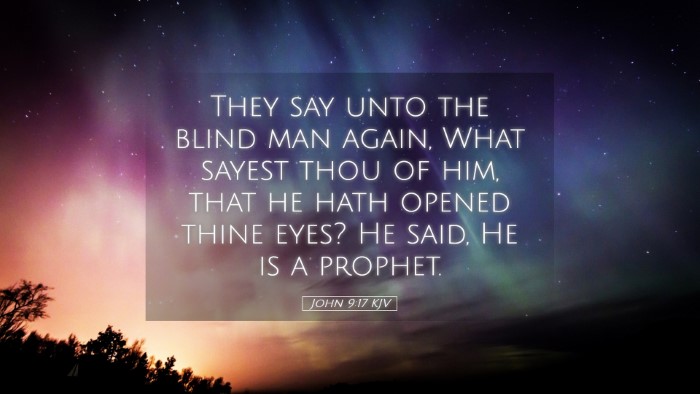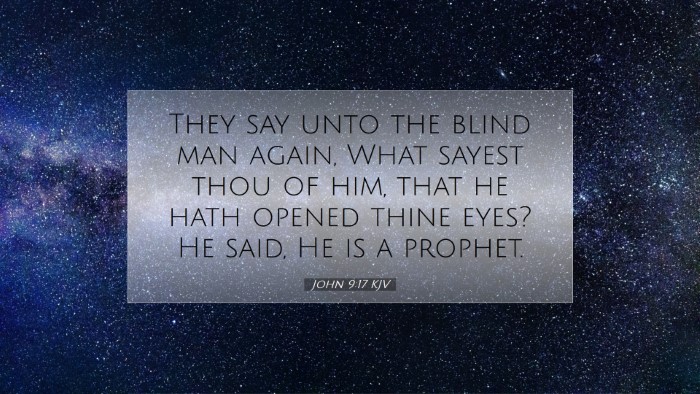Commentary on John 9:17
"They said unto the blind man again, What sayest thou of him, that he hath opened thine eyes? He said, He is a prophet."
Context and Background
The context of John 9 revolves around the miraculous healing of a man born blind. This miracle serves as a platform for deeper theological discussions about spiritual blindness and true sight. The verse serves as a pivotal moment where the healed man's understanding of Jesus begins to unfold.
The Significance of the Question
In this verse, the inquiry from the Pharisees to the man who was formerly blind emphasizes their skepticism and need for a theological evaluation of Jesus' identity. Each question posed by the Pharisees reveals their struggle to accept Jesus. Matthew Henry notes that their persistent questioning serves not only to challenge the man's testimony but also highlights their spiritual ignorance.
Albert Barnes remarks that by asking “What sayest thou of him?” they sought to discredit Jesus further, forcing the man to articulate his views in a way that affirms their doubts.
The Blind Man's Response
The former blind man's declaration that Jesus is “a prophet” is significant. Adam Clarke emphasizes that the term “prophet” denotes a recognition of Jesus’ divine authority and power. Although the man does not completely comprehend Jesus' nature, this statement marks a step towards the revelation of Christ's identity.
Furthermore, the choice of the term “prophet” may indicate the man’s understanding of Jesus as one sent from God, aligning him with prophetic figures from Jewish history such as Elijah and Elisha.
Theological Implications
The assertion that Jesus is a prophet carries a weight of historical and theological implications. It indicates the man’s gradual spiritual awakening and an emerging faith that recognizes Jesus’ profound authority. Henry expounds that this progression from a physical healing to a spiritual awareness is a theme throughout the Gospel of John.
Moreover, Barnes points out that this moment encapsulates a broader teaching within John’s Gospel regarding the increasing revelation of Christ’s identity through human experience and testimony. Here, the healed man serves as a witness to the transformative power of Jesus.
Broader Context in John’s Gospel
John 9:17 serves as a transitional point in the larger narrative of John's Gospel, which often contrasts physical sight with spiritual blindness. This theme is prevalent throughout the book, where physical miracles serve as signs pointing to deeper spiritual truths. Clarke elucidates that those who experience Jesus must grapple with not just the realities of their physical lives but also the implications of faith and revelation.
As more characters in the narrative grapple with their understanding of who Jesus is, this verse foreshadows the impending conflict between Jesus and the religious authorities who remain in spiritual darkness. The admission of the healed man that Jesus is a prophet places him in stark contrast with the religious leaders, who are unwilling to accept the truth of Jesus’ divine authority.
Application for Believers
This passage has significant implications for modern believers. First, it compels readers to evaluate their understanding of Jesus. Just as the man progressed from blindness to sight, so too must modern Christians affirm their beliefs about Christ. How do we as a community respond to the works of Christ among us?
Furthermore, there is a call for believers to not shy away from witnessing to their experiences. The healed man's response was simple yet profound, illustrating the power of personal testimony. Henry encourages believers to be bold in their proclamation of what Christ has done in their lives.
Conclusion
John 9:17 presents a moment of pivotal recognition and confession. The man's understanding of Jesus allows for a deeper exploration of faith and identity. By asserting that Jesus is a prophet, he not only acknowledges a crucial truth about Jesus but also sets the stage for further revelations. Awareness of spiritual blindness and the journey toward understanding serve as essential themes for both the context of the narrative and the lives of believers today.


